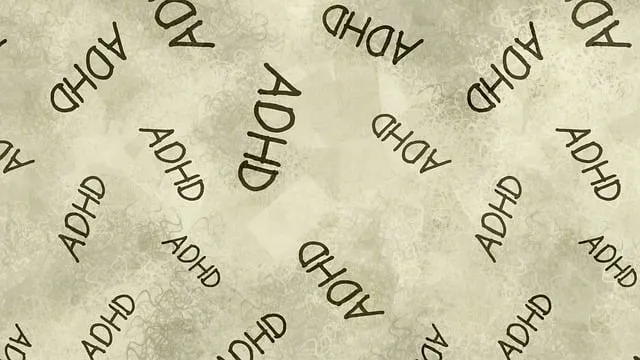The Wheat Ridge Kaiser Permanente behavioral health providers offer a comprehensive guide to mood regulation, emphasizing early intervention and self-care through evidence-based strategies like CBT, mindfulness, stress management, and social support. They tackle mental illness stigma by educating and advocating for inclusive policies while empowering individuals to navigate emotional challenges holistically. Their tailored therapy, counseling, and lifestyle interventions, including cognitive techniques and cultural sensitivity, aim to prevent depression and burnout, promoting long-term emotional balance. Lifestyle changes, like exercise, balanced diets, and mindfulness practices, further enhance mental stability.
Explore effective mood regulation strategies with guidance from Wheat Ridge Kaiser Permanente behavioral health providers. This comprehensive article delves into various approaches, including behavioral and cognitive techniques, as well as lifestyle changes proven to enhance mental stability. Understanding how to navigate emotional balance is crucial for overall well-being. Discover practical tips and insights designed to empower individuals in managing their moods and improving their quality of life.
- Understanding Mood Regulation: A Kaiser Permanente Guide
- Behavioral Health Approaches for Emotional Balance
- Cognitive Techniques to Manage Mood Swings
- Lifestyle Changes for Enhanced Mental Stability
Understanding Mood Regulation: A Kaiser Permanente Guide

Understanding Mood Regulation is a comprehensive guide offered by Wheat Ridge Kaiser Permanente’s behavioral health providers. It delves into various strategies designed to help individuals manage and stabilize their moods, with an emphasis on evidence-based practices. This resource aims to empower folks in navigating emotional challenges, promoting mental well-being.
The guide highlights the importance of early intervention and self-care as key components of mood regulation. It introduces effective techniques such as cognitive-behavioral therapy (CBT), mindfulness practices, and stress management skills. Additionally, it touches on the role of social support networks and community resources in fostering resilience against mental illness. In light of the ongoing Mental Illness Stigma Reduction Efforts, the guide also offers insights into building coping mechanisms while advocating for inclusive mental health policies through education and awareness.
Behavioral Health Approaches for Emotional Balance

Wheat Ridge Kaiser Permanente behavioral health providers offer a range of strategies to help individuals achieve emotional balance and manage their moods effectively. These approaches often involve a combination of therapy, counseling, and lifestyle interventions tailored to each person’s unique needs. One key aspect is cognitive-behavioral therapy (CBT), which helps individuals identify and change negative thought patterns and behaviors contributing to mood disorders.
Cultural sensitivity in mental healthcare practice plays a significant role, ensuring that treatments are respectful and relevant to diverse backgrounds. Public awareness campaigns development also contributes to promoting understanding and reducing stigma associated with mental health issues. Additionally, these providers may incorporate mindfulness practices, stress management techniques, and even art or music therapy for anxiety relief, offering holistic solutions to support overall well-being.
Cognitive Techniques to Manage Mood Swings

Cognitive techniques, guided by Wheat Ridge Kaiser Permanente behavioral health providers, offer powerful tools for managing mood swings. These strategies focus on identifying and challenging negative thought patterns that can trigger or exacerbate emotional volatility. By learning to recognize cognitive distortions such as catastrophizing, black-and-white thinking, or jumping to conclusions, individuals gain a valuable perspective to reframe their thoughts in more balanced and realistic ways. This cognitive restructuring not only helps during acute mood episodes but also supports long-term depression prevention and burnout prevention.
Self-care practices play a pivotal role alongside these techniques. Regular mindfulness exercises, for instance, can help individuals cultivate present-moment awareness, allowing them to observe and accept their emotions without judgment. Additionally, engaging in structured activities that promote relaxation and joy—such as exercise, creative pursuits, or connecting with supportive communities—are integral parts of an effective mood regulation strategy. By combining these evidence-based practices, self-care practices, and the guidance from Kaiser Permanente’s behavioral health providers, individuals can develop robust coping mechanisms to navigate their emotional landscapes effectively.
Lifestyle Changes for Enhanced Mental Stability

Making lifestyle changes is a powerful tool for enhancing mental stability and overall well-being. Wheat Ridge Kaiser Permanente behavioral health providers emphasize that adopting healthier habits can significantly impact an individual’s mood regulation capabilities. Simple adjustments like incorporating regular exercise, following a balanced diet, and prioritizing quality sleep can work wonders in stabilizing emotions and reducing stress levels. These changes create a foundation for improved mental resilience, allowing individuals to better cope with life’s challenges.
Additionally, engaging in activities that promote relaxation and mindfulness, such as meditation or yoga, can be beneficial. Many organizations like the Stress Management Workshops Organization offer resources and programs focused on teaching effective stress management techniques. By incorporating these practices into daily routines, people can gain a sense of control over their mental health. This proactive approach, combined with professional support from behavioral health providers, contributes to a comprehensive strategy for managing and maintaining positive mental stability.
Mood regulation is a journey, and with the right strategies, individuals can achieve emotional balance. By combining Behavioral Health approaches, cognitive techniques, and lifestyle changes as suggested by Wheat Ridge Kaiser Permanente behavioral health providers, one can effectively manage mood swings and promote mental stability. These holistic methods empower folks to navigate life’s challenges with resilience and a newfound sense of control.






